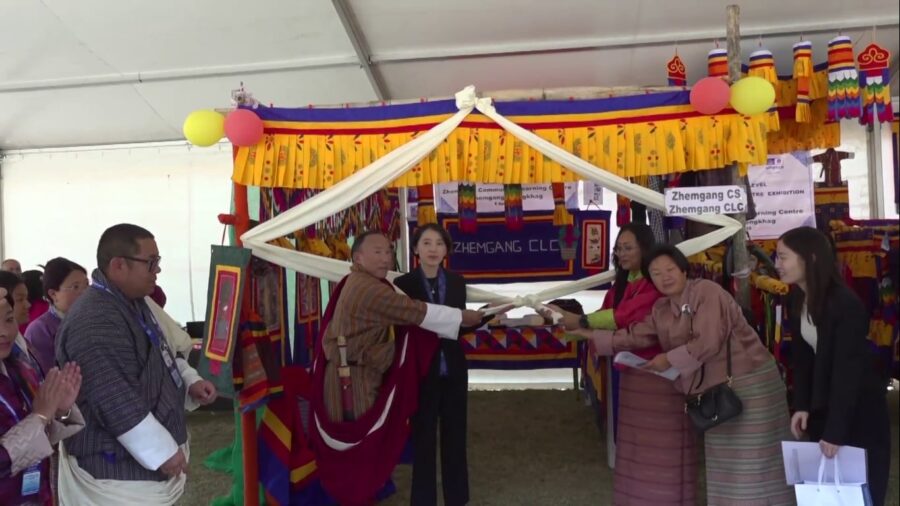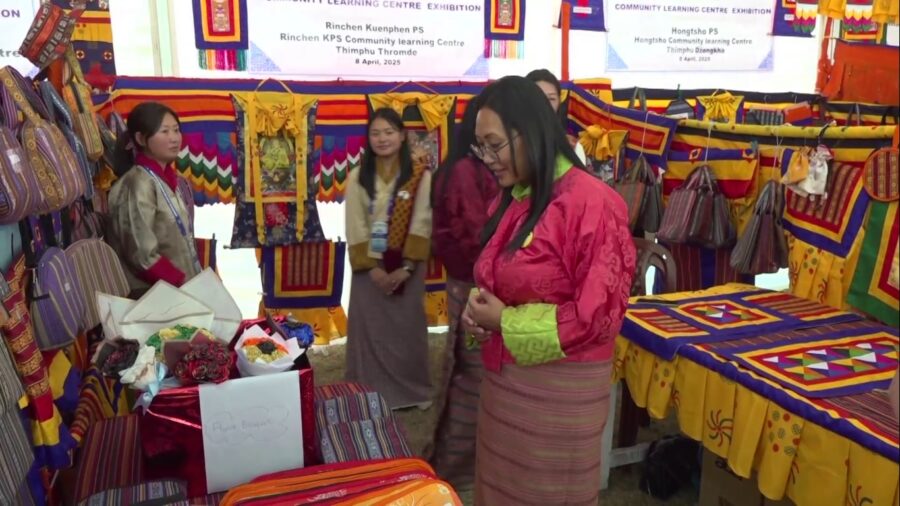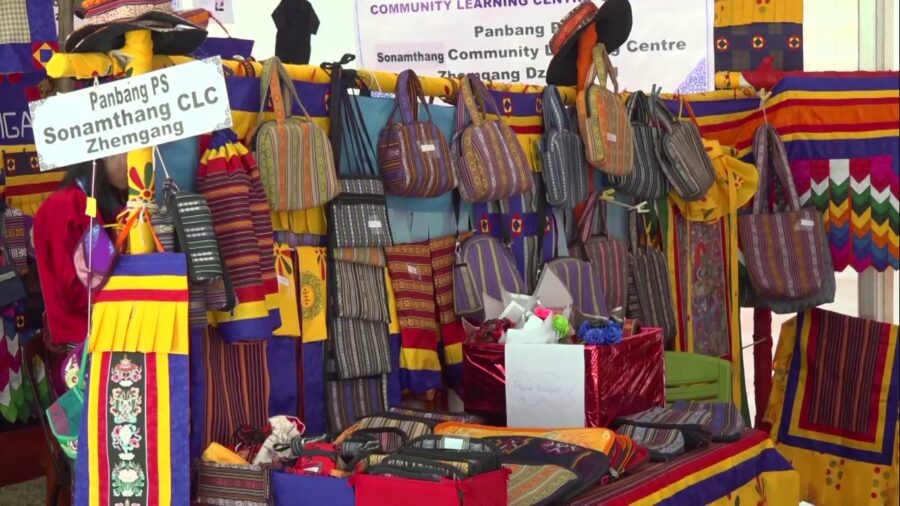 The Community Learning Centres under the Ministry of Education and Skills Development (MoESD) have made a meaningful impact across the country by equipping individuals with vocational skills. This was showcased during the second National-Level Community Learning Centres Exhibition held in Punakha today. Instructors and learners displayed the outcomes of their training at the event.
The Community Learning Centres under the Ministry of Education and Skills Development (MoESD) have made a meaningful impact across the country by equipping individuals with vocational skills. This was showcased during the second National-Level Community Learning Centres Exhibition held in Punakha today. Instructors and learners displayed the outcomes of their training at the event.
 The education minister attended the day-long exhibition, joined by district education officers and school principals. Officials from the Korean National Commission for UNESCO, which funded the Community Learning Centres, were also present.
The education minister attended the day-long exhibition, joined by district education officers and school principals. Officials from the Korean National Commission for UNESCO, which funded the Community Learning Centres, were also present.
 Instructors from 29 centres, along with 58 learners, exhibited a wide range of items, from souvenirs to religious items. Over the 18-month training, the learners gained substantial vocational skills. The training also included carpentry and baking.
Instructors from 29 centres, along with 58 learners, exhibited a wide range of items, from souvenirs to religious items. Over the 18-month training, the learners gained substantial vocational skills. The training also included carpentry and baking.
Participants showcased their ability to design and stitch a variety of products. Community Learning Centres have become a source of hope and empowerment, especially for women. Many have since opened tailoring shops, found employment, or started home-based businesses.
“I am happy that within just one and a half years, they have acquired the skills to produce such quality products. Many of our adult learners have benefitted and even started their businesses, gaining economic independence through these skills,” said Ugyen Tshomo, the chief programme officer with the Adult and Higher Education Division, MoESD.
The Community Learning Centres were initially established to support Non-Formal Education graduates but have since expanded to benefit out-of-school youth, nuns, monks, and other community members.
“I did not know about tailoring before. But through this training, I learned to stitch Kuthang and different dresses like Tego and Wonju. These skills will be very helpful. In the past, we had to depend on others for even small stitching work, but now, I can do it myself,” said Sherab Choden, a member of Gyalposhing Community Learning Centre in Monggar.
A member of Jomotsangkha Community Learning Centre in Samdrup Jongkhar, Changa Lhamo said, “I have gained enough skills to help friends and even earn some income by stitching at home. I believe I can make a decent living if I start a business. With various design ideas available on YouTube, I plan to keep learning and enhancing my skills.”
“I didn’t know anything about stitching before. But now, thanks to our instructor, I can stitch Chhukhep, tablecloths, curtains, Wonju, Tego, and even Kira. I am so happy and plan to start a business in the future,” said Tshering Gyem, Dorokha Community Learning Centre.
Products from the exhibition will be evaluated and awarded cash prizes ranging from Nu. 10,000 to Nu. 100,000.
Ugyen Tshomo said, “Going forward, if we receive good projects and funding, we plan to diversify the skill sets beyond tailoring to ensure sustainability. Tailoring alone could saturate the market, so we need to focus on high-quality skills that can also align with the needs of initiatives like the GMC.”
Currently, nearly 400 learners are undergoing training at 29 Community Learning Centres across the country.
Changa Dorji, Punakha
Edited by Kipchu








